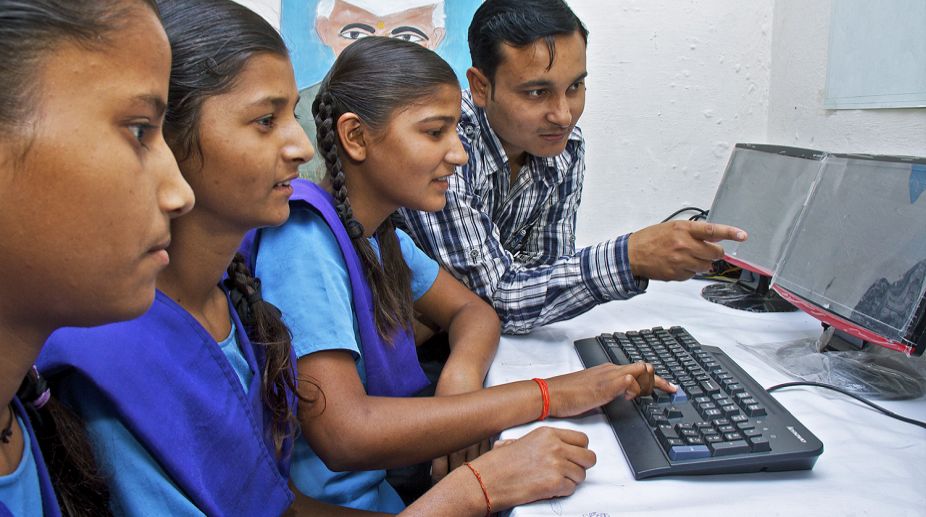The quality of education plays a critical role in shaping the growth drivers of any nation. In India both public and private sectors are involved in providing education so as to create the right set of human capital, support quality life, promote national interest and values, generate intellectual wisdom and largely contribute in taking the economy to newer heights.
The Goods and Service Tax is a much awaited major reform in the Indian tax system. From policy makers to industry experts and educationists, the impact is watched closely especially in a nation where average four per cent of GDP is set aside for education by the government with an allocation of 50 per cent for the primary education.
The consideration extended towards this sector by being exempted from tax is a step that would give boost to literacy in the country which is critical for a developing nation.
This will also allow the pre-school/ early childhood/foundation education to nurture and innovate so as to create the best of the global citizens for future. Education should be considered as a necessity and thus provision and support are required to make the infrastructure widespread and effective. Since this is a service, it is only subject to service tax and none of the direct or indirect taxes are levied on it.
The pre-education sector in India requires a lot of attention from both policy and industry point of view. It is significant for children as it allows them to open new vistas of knowledge, empower learning skills and is the first step towards a better future and quality life.
The increase in demand is boosting primary education enrollments and is developing a larger platform for both public and private institutes to develop much more advance and effective learning tools to shape the future generation. Availability of quality pre-education is still at its nascent stage and requires a lot of policy support so as to maintain education entrepreneurship and innovation in the sector. With the current GST exemption for educational and training services, K-12 education in the country is certainly going to take a big leap.
The new GST law is going to provide a great relief to pre-school, primary and higher secondary education category which is the need of the hour. GST Council has reduced the rate on a few of the school supplies including bags, books, etc, which will provide breather for parents who are concerned about the rising school expenses. Government’s move to exempt student’s colouring, textbooks, dictionaries and religious books is a great step in the direction of creating newer and innovative foundation platforms for education.
This is a welcoming step to motivate the pre-school and primary education but a more thorough approach is required for sustained benefits to the society at large. Although most of the input services have been taxed higher, this requires further more action to pave way for technology to empower learning, education and literacy rate of the country. Categories such as technology, infrastructure, information technology, etc, being used for educational purposes also need to be seen under a lenient outlook.
Unless the support system is strengthened, education would not be able to achieve the desired results. GST burden on certain input supplies such as telecommunication, equipments, purchase of goods, etc, is going to effect the educational institutions and hence this need to be considered in coming time. With government’s commitment to encourage the education industry and human capital of the country, various exemptions under the new law are extremely encouraging.
Still the sector need more tax reforms so as to save the affordability and quality of education from the additional input taxes on expenditures.
Various training courses, coaching from private institutions, development programmes and distance learning courses would be liable to GST. This is going to impact the affordability of the student, creating more challenges for primary activities so as to prepare for larger career and education related goals.
Education has been and will remain a prime focus of our country’s leadership and edu-tech is the new face and the future of education in our country. With the development of user friendly technology – educational programmes, apps and educational modules and high penetration of telecom services, this is the only viable vehicle to take the cause of education to its destination.
Tax reduction on new learning technologies, digital tools and other related services would have added more positive impact allowing the industry to introduce better innovation at affordable cost.
Education in India is at its growth phase presenting a plethora of opportunities for new players and investors.
Tax exemption will attract more investments and increase the flow of funds so as to strengthen the education infrastructure of the country.
The writer is director, Aadarsh Pvt Ltd











